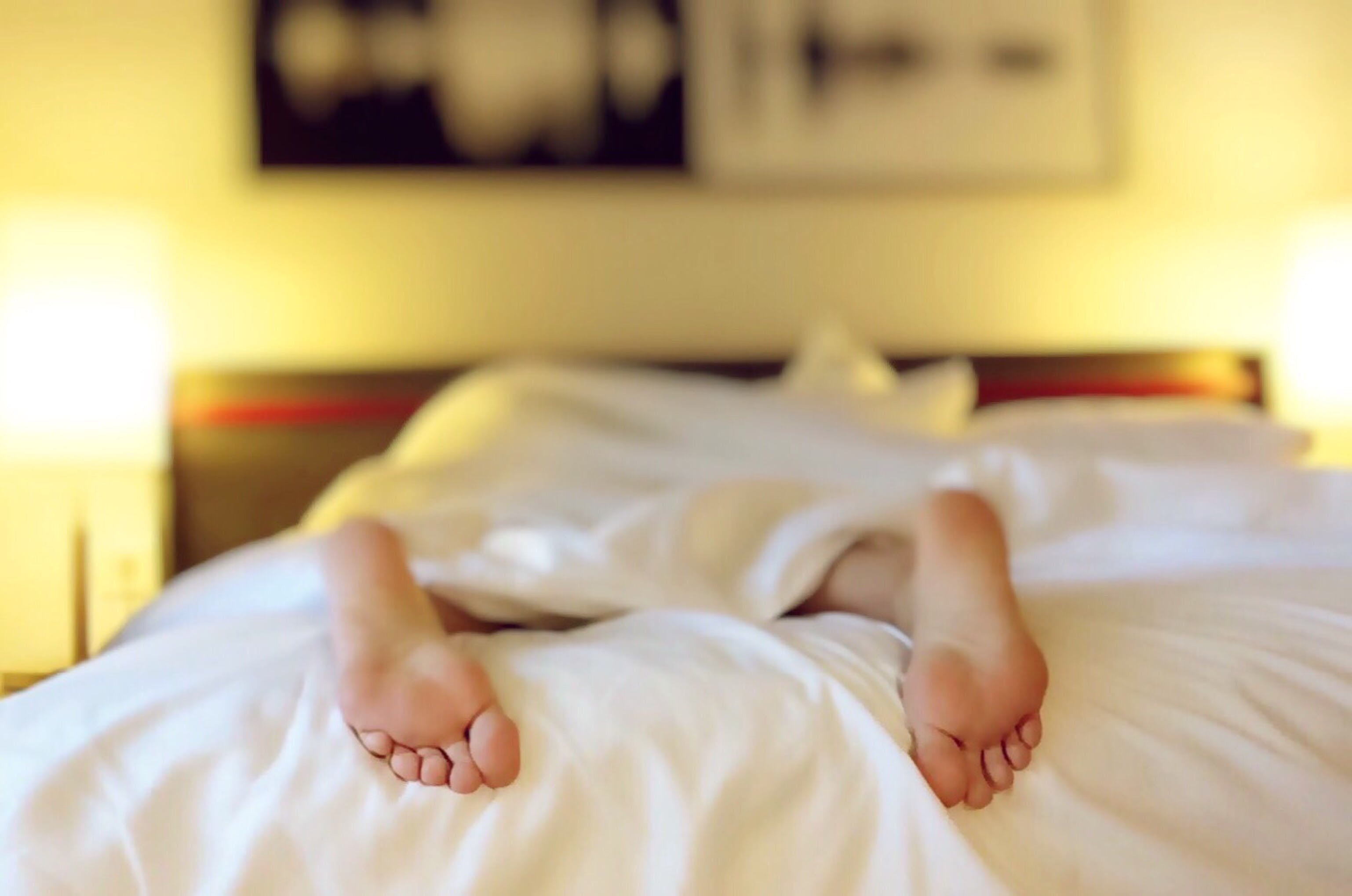The importance of sleeping well at uni
University can feel like one of the busiest times of our lives. With competing priorities like lectures, coursework, clubs, societies, work, and family commitments, it’s easy to feel like there aren’t enough hours in a day. While pulling an all-nighter or getting fewer hours of sleep can seem like the best way to get things done, lack of sleep can really disrupt our physical and mental health.
Let’s talk about why sleep is so important, its impact on mental health, and some tips for getting a better night’s sleep.
Why is sleep important?

Sleep is essential; we can’t function or survive without it. But studies suggest students are not getting enough. While people aged 18-60 need at least seven hours of sleep per night, a study by My Student Halls found that 19% of students are getting less than five hours of sleep, and 46% would rate their sleep as bad or fairly bad.*
*Research from this article is from the Centres for Disease Control and Prevention, The Sleep Foundation, and My Student Halls.
Sleep has many benefits for our mind and body; here are three important ones:
1. Sleep supports your body’s systems
During sleep, our bodies regulate systems for breathing, blood circulation, growth, immunity, and more. Long-term sleep deprivation is linked to a range of health issues, including obesity, heart problems, and issues with our metabolism. Additionally, university environments can be breeding grounds for illnesses. And people who don’t sleep enough may be more likely to get colds and other infections. A well-rested body is better equipped to defend against infections and repair itself.
2. Sleep improves your brain functioning
During the day, the information we learn is temporarily stored in an area of the brain called the hippocampus. This has a limited storage capacity; if we don’t get enough sleep, information cannot be stored properly and we can’t remember it. When we sleep, our brains sort through this information, deciding what to keep and what to dispose of. It’s then transferred from short to long-term memory, allowing us to recall the information much later.
A lack of sleep can lead to a decreased attention span and difficulty concentrating, as we’re using more energy to try to remain awake. Adequate sleep helps us stay focused during lectures, seminars, and while studying. When you're well-rested, you're likely to have better time management skills and less likely to procrastinate because you have more energy to do your daily tasks.
3. Sleep improves performance and increases productivity
Sleeping well can enhance our performance and productivity. Research shows that people tend to make fewer errors and have better academic performance with adequate sleep. For university students, this is particularly relevant in contexts such as lab work, research, and writing papers, where accuracy is crucial. Students who consistently get enough sleep are likely to perform better in exams and assignments.
How can sleep affect our mental health and wellbeing?
Not sleeping enough has a huge impact on our mental health. It can make us feel moody or irritable, and increase our risk of experiencing anxiety, depression, and stress. The cognitive impact of not having enough sleep can make these challenges worse, as poor attention, memory, and decision-making abilities can lead to brain fog and feeling more emotional.
It becomes a cycle. Poor sleep can lead to increased stress levels. The more stressed we are, the more likely we are to experience sleep difficulties, making it difficult to get a refreshing night’s sleep. Having a sleep schedule can help regulate our mood, reduce stress, and promote positive mental wellbeing.
[For more articles related to university, head to the magazine pages at Kooth Student and select the “Education” tab under the “Categories” section.]
Seven things you can try to help get a better night’s sleep

- Use your bed only for sleep. If you use your bed for activities other than sleep, your brain begins to associate it with those activities, making falling asleep feel more like a chore. In shared accommodation, this can be difficult, as your bedroom may be your only private space. You could try eating your meals in communal areas and going out and socialising where possible. If you want to be in your room, try sitting at your desk or sitting on your bed, rather than in it.
- Reduce caffeine and alcohol intake. Try not to have caffeine or alcohol six hours before going to sleep – they can stop you from falling asleep and prevent deep sleep.
- Try to set a regular bedtime and waketime. Going to sleep and waking up at the same time each day gets your body into a routine and makes falling asleep easier.
- Switch off screens where possible and do not do stimulating activities an hour before bed. The light from the screen can negatively affect sleep. Social media, news, and games can all stimulate our brains and make us more awake. If you use your screen for your nighttime routine, e.g., listening to music, audiobooks, meditations etc., you can adjust the settings on your phone. You can put it onto night mode, which reduces the “blue light” emitted or even change it to greyscale to make it less noticeable.
- Create a relaxing environment. Often, bedrooms that are dark, cool, and quiet are easier to fall asleep and stay asleep in. However, we all have our individual needs, so create a space that you feel most comfortable in.
- Have a nighttime routine that lets you unwind and sends a signal to your brain that it's time to sleep. For example, you may have a shower/bath, brush your teeth, and then read or listen to music for 30 minutes before sleeping.
- Don’t force yourself to lay in bed if you aren’t tired. If you can’t sleep after 20 minutes, getting up and doing a relaxing activity until you feel sleepy can be helpful.
Overall, sleep is essential for our health and well-being, and is particularly important at university when we need to focus on our studies. Establishing good sleep habits can contribute significantly to our academic success, emotional well-being, and overall life satisfaction during our university years.
Would you like a safe space to explore the issues raised in this article? At Kooth, you can read more, use an online journal, chat with our community and access confidential and anonymous support - all for free, with no waiting lists. Ask your reception team or ECA for more details on how to access Kooth.

